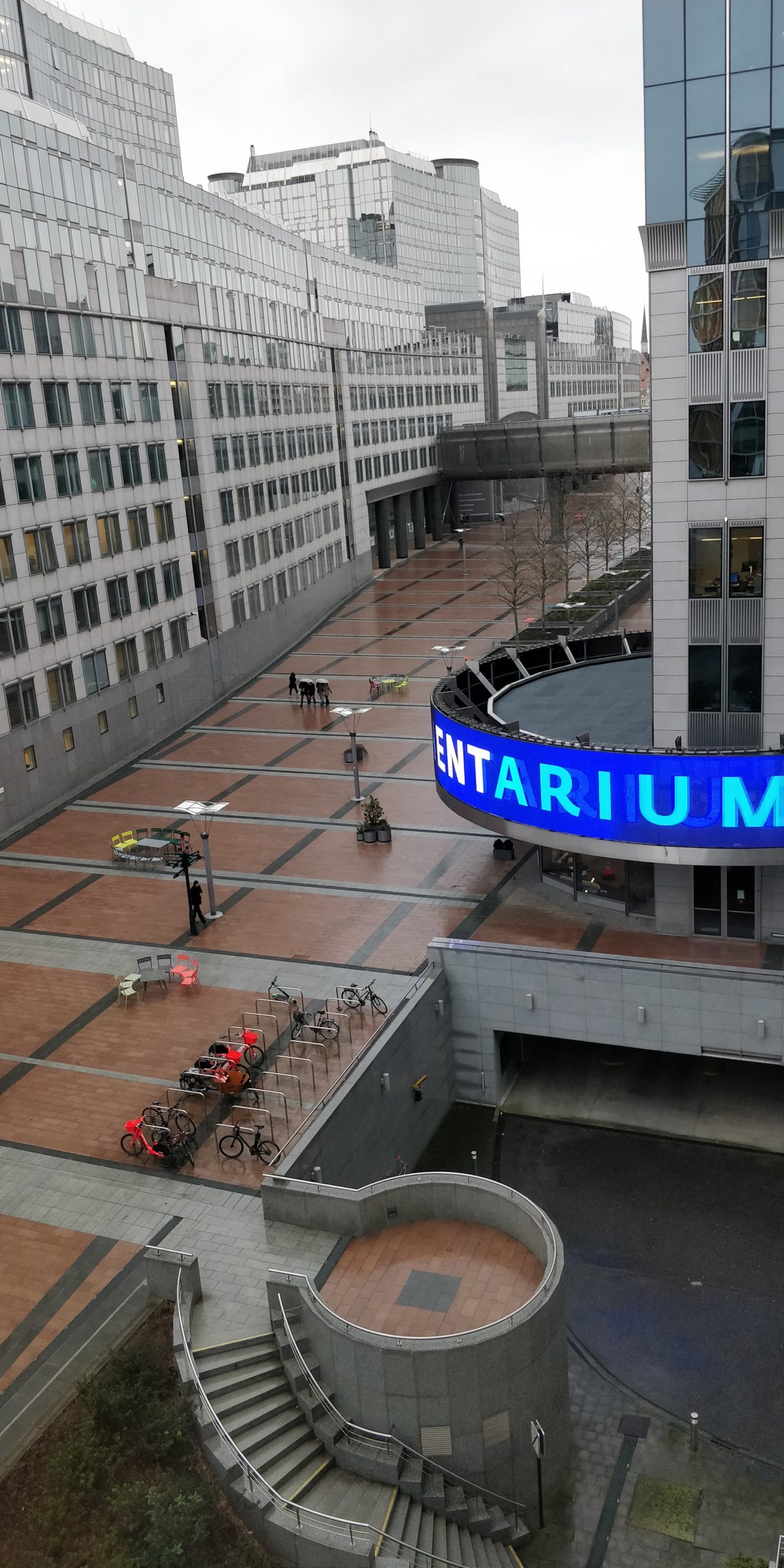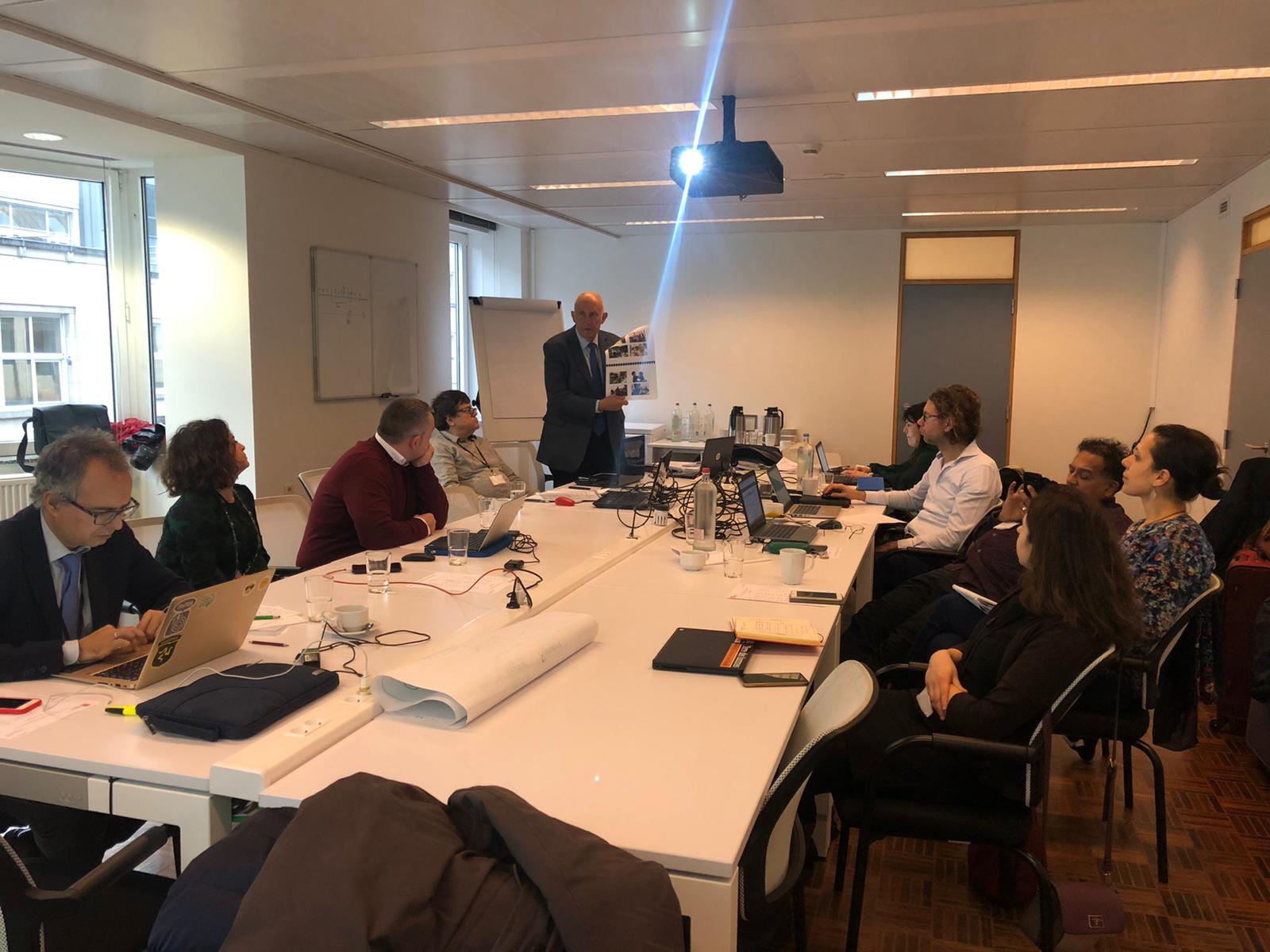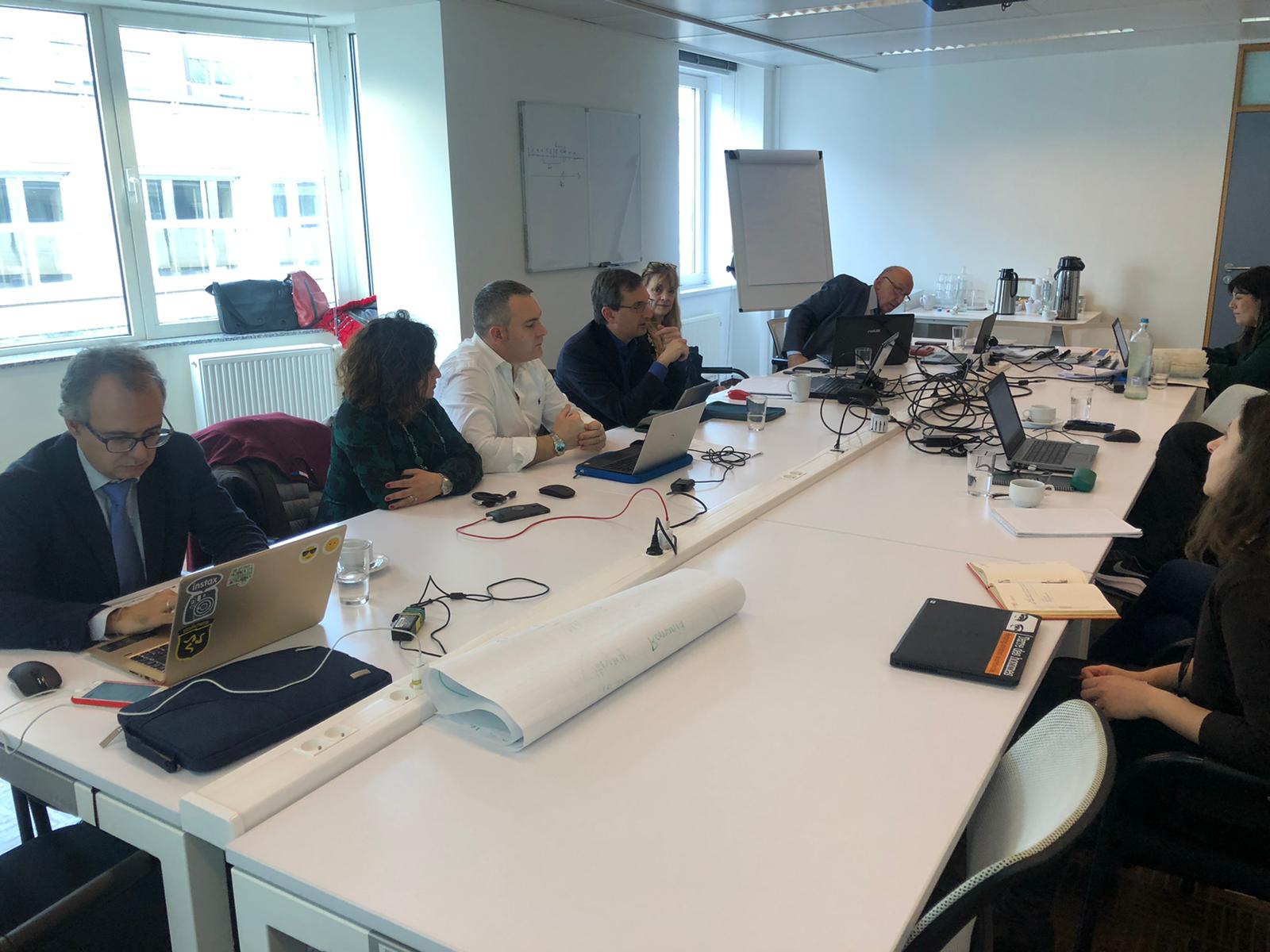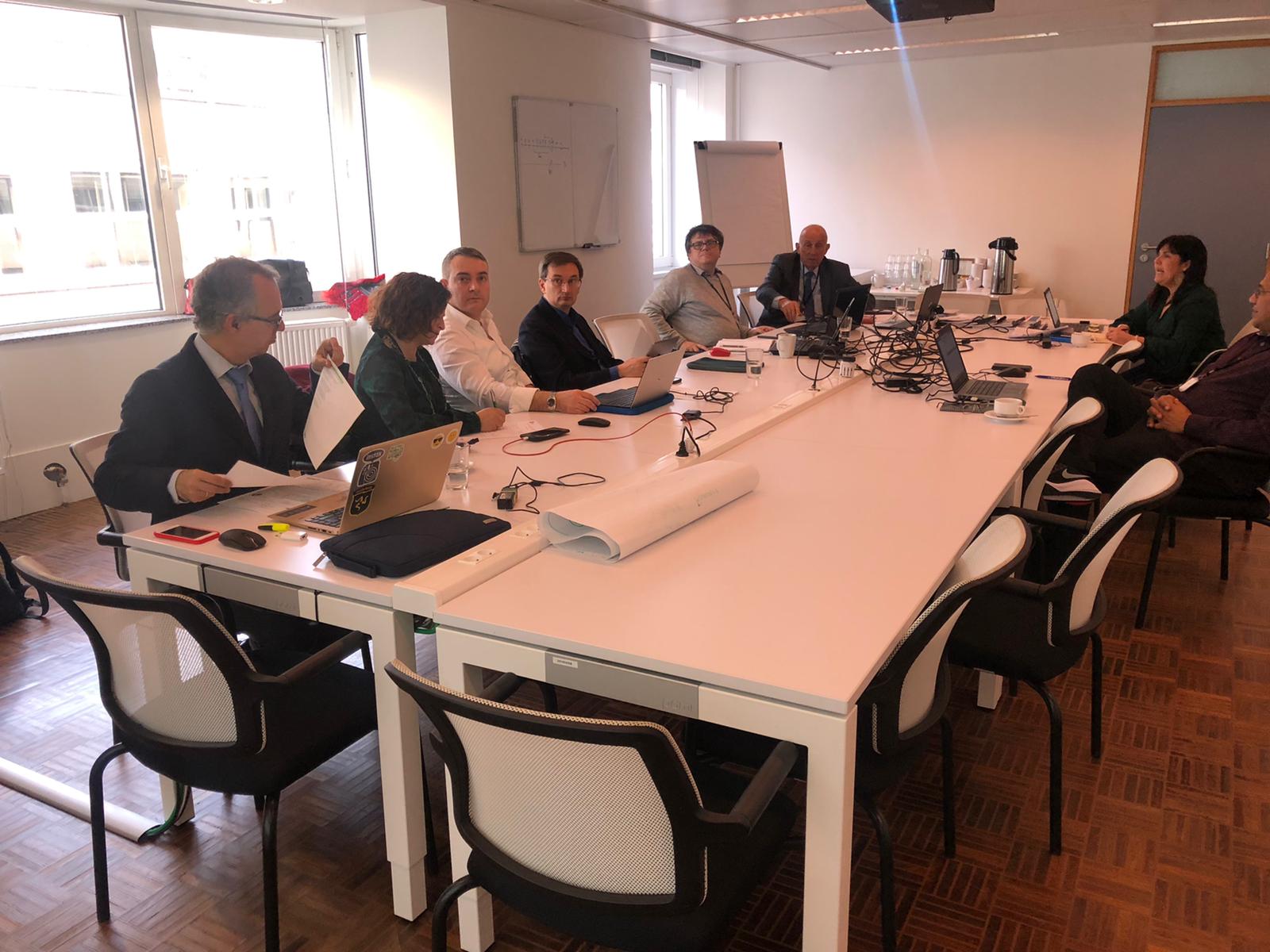Events
January 2020 Bruxelles.




Today's minors surf the internet and access social media daily, both to communicate with friends and family, and to watch videos and/or visit and monitor their social profile. This makes them easy victims of cyberbullying phenomena, often ignored and/or underestimated by parents, teachers and educators. In Europe - according to Unicef data - the children most vulnerable to cyberbullying are CAM - i.e. children affected by migration, refugees, asylum seekers or economic or social migrants, who suffer from their personal history and their reduced social and emotional well-being. In the light of these data and on the basis of the results achieved by the implementation of the ICAM project, the project partners decided to implement the BeCSR project, aimed at improving the ability of CAM children between the ages of 8 and 13 to use the Internet and social media, through the development of their social and emotional learning (SEL) and their social inclusion. The development of the SEL, in fact, will allow them to become safer and more responsible for themselves, in order to protect themselves and not be victims of any cyberbullying phenomena. In order to ensure the achievement of these goals, the project will implement a carefully designed cascade training program, largely online, starting with BeCSR National Facilitators and consequent training for school staff and parents, so that everyone can develop an understanding of how to help children develop social and emotional skills and attributes for safe and responsible permanent behavior during online life.
The 10.5 million Children Affected by Migration (CAM) who are refugees, asylum seekers economic migrants, or children left behind by migrating parents/carers, are the most vulnerable children in Europe, threatened by the highest rates of cyber bullying, radicalization and on-line grooming. BeCSR focuses on CAM aged 8-13 at a critical age for learning to use the internet. The project develops their Social and Emotional Learning (SEL), and increases their on-line media literacy so that they have the ability to protect themselves and other children and to make safe and responsible decisions when they are on-line; including in particular their avoidance of, and response to, cyberbullying, radicalization and grooming - as victims or as bystanders. The internet is the most powerful aid for universal access to learning yet developed. Damage and harm caused by abuse and improper use of the internet is one of the biggest threats to vulnerable children that society faces. 50%+ of EU teens have been bullied online, and 50% have engaged in cyber bullying. UNHCR reports a rise in xenophobia, racism and racial attacks resulting from the recent increase in the migrant population in Europe. CAM are 2x as likely to be victims of cyberbullying and 3x more likely to suffer social exclusion on social media. Victims of cyberbullying suffer reduced learning capacity and lose all the benefits that on-line learning provides. In extreme circumstances the abuse leads to suicide. The rate of suicide among teenagers has increased in recent years to 9 per 100,000 average across Europe and is linked to the influence of social media. SEL (Social and Emotional Learning) is a process of acquiring social and emotional values, attitudes, competencies, knowledge and skills that are essential for learning, effectiveness, wellbeing and success in life. Although it can be taught, most SEL is assimilated and requires the appropriate climate in school and in the home for SEL to flourish. Consequently the SEL improvement for CAM will be achieved alongside the improvement to the climate of convivencia (living in harmony) in schools and in the home. The project includes an essential parent/carer education programme. Our aim is to create the school and home environment of convivencia and improved SEL so that children know and understand better how to make decisions about their safe and responsible behaviour on the internet leading to lifelong learning behaviour in harmony with others in the world around them. The transnational approach of ICAM and now of BeCSR enables the partners to combine expert knowledge from the UK, Spain Italy, Romania and EU (through OEC ) with the international reach of Associates UNICEF Terre des Hommes and Eurochild to develop approaches which will truly help reduce the damage to CAM and promote the positive benefits of safe and responsible internet usage for all children in Europe. The structured dissemination of this project has the potential to not only reach all CAM in Europe but also to provide a model to help schools and parents/carers improve the safe and responsible use of the internet by and for ALL CHILDREN.
The project aims have a focus on creating the school and home environment and processes for increasing social and emotional learning (SEL) so that children know and understand better how to make responsible decisions about their behaviour. This can apply equally as well to safe behaviour on the internet as to their learning behaviour in harmony with others in the world around them. SEL is a process of acquiring social and emotional values, attitudes, competencies, knowledge and skills that are essential for learning, effectiveness, wellbeing and success in life. These qualities include self-awareness, emotional literacy, resilience, persistence, motivation, empathy, social and relationship skills, etc. The successful Erasmus + ICAM programme will be further enhanced by the specific support of the BeCSR project BeCSR develops all children’s social and emotional competences and learning behaviour needed for sensible, safe and responsible use of the internet by equipping their schools, staff and parents with the facilitating tools to do so. Specific objectives are listed in the sections below. It is a major task to create a full SEL curriculum in schools. Therefore, the emphasis of the project and of IO1 specifically is on enabling schools to first review what they already do for SEL and then identifying SEL competencies missing specifically related to making good choices for internet uses. This should lead to a curriculum building on what is already in place to enhance SEL specifically related to on-line behaviour and safety.
January 2020 Bruxelles.




The 6 partners of the BeCSR, The Northampton Center for Learning Behavior (NCfLB) and Achievement for All (AfA) in the United Kingdom, Accessophia in Spain, Consortium of ICARO Social Cooperatives in Italy, Inspectorate in Ploesti (ISJP) and Open Education Community.
Is a leading not-for-profit UK organisation that works in partnership with early years settings, schools and colleges, improving outcomes for all children and young people vulnerable to underachievement regardless of background, challenge or need. Founded in 2011, the mission of Achievement for All is simple: to close the unacceptable gaps at every level of the education system. Empowering young people, as well as their teachers, parents and carers, the charity works to transform lives through personal coaching, professional support, and a leading network of educational experts. For more information visit afaeducation.org.
functions as a focal point in the further development of existing work in social, emotional and behavioral difficulties (SEBD) in the following areas: Short, medium and long term consultancy, Research, Teaching and training, Resource development, International work with governments and NGOs. was established by the Northampton University in 2011 as an enterprise company building on the reputation of the Centre for Learning Behaviour founded in 2006. From its university base, the NCfLB provides consultation, advice and training for international organisations, governments, local authorities and other bodies in how to improve learning behaviour, reduce violent/bullying behaviour and enhance Social and Emotional Learning in schools, in child care settings and in the home. NCfLB has successfully completed more than 30 consultation and training contracts for UNICEF, The Council of Europe and national governments and authored the Council of Europe Handbook and Training Pack – Violence Reduction in Schools, The UNICEF international Guidance on Social and Emotional Learning, Violence Reduction in Schools and Violence Abuse and Neglect in Early Years. For more information visit ncflb.
is a Romanian Regional School Inspectorate, under the authority of the Ministry of Education. Its main task is to coordinate and to control the schools of all levels in the county of Prahova. That means 250 schools, with 10 500 employees, teachers, administrative staff and other staff, and 120 000 students, from 3 to 19 years. ISJP has implemented several programmes having as targets children and youth from disadvantaged groups, such as Roma, migrants and those with disabilities.
A non-profit organization founded in Madrid shares information for good practice and conveys a vision for those responsible for change; they provide the right tools for personal and professional development and training in the field of social inclusion and empowerment.
is a non-profit consortium of social cooperatives created in 1995 with the aim of formulating a concrete answer to the problems of groups at risk of social exclusion. In recent years, the Icaro Consortium has expanded its sphere of interest – with a focus on children at risk of involvement in criminal activities – and the socially vulnerable (elderly, children, mentally and physically disabled, drug addicts, immigrants, unemployed young people etc.), creating “personal services”, socio-educational support and social services, employment, education, national service, as well as managing residential and semi-residential care facilities intended for these clients. Icaro also manages services and projects on behalf of the Presidency of the Council of Ministers, in the Campania Region, working with Local Authorities providing health and social services. In recent years, Icaro has expanded into Europe, by creating and strengthening partnerships with public and private bodies from different Member States, helping to analyse social problems and work out together the best methods for their resolution. We have managed, projects funded by the European Commission, as well as the present ICAM programme. For the realisation of this programme, Icaro, thanks to the collaboration of local associations, has identified different partner schools with Children Affected by Migration (CAM). Consorzio Icaro.
Started as an informal network in 2014 and later officially established as a pan-European not-for-profit foundation, the Open Education Community serves the needs of enthusiastic, dedicated teachers, trainers, students and other professionals in education with a community and sharing mind-set and an international orientation. The Open Education Community is a vibrant network passionate about advancing Open Education. Derived directly from its mission and statutes, the Open Education Community aims to maximise the reach, impact and legacy of innovative educators, teachers, trainers, students and other professionals in education with a community and sharing mind-set and an international orientation. The Open Education Community is a vibrant network passionate about advancing Open Education. Derived directly from its mission and statutes, the Open Education Community aims to maximise the reach, impact and legacy of innovative educators.
